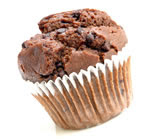healthy weight loss happens at about 1-2 pounds per week. If you want to lose 20 pounds, you should expect it to take anywhere from 10-20 weeks (~2-4 months). A good way to think about how long it'll take to lose weight is to try and remember how long it took you to gain it. If you gained 40 pounds over an entire year, don't expect to lose it within a few weeks.
The most important rule to follow when losing weight is simple: to lose weight, you have to burn more calories than you eat. By creating a calorie deficit (burning more calories than you eat) your body is forced to use sources other than food (body fat) for energy which causes weight loss. This rule is what every successful weight loss strategy MUST be based on. Any program that claims you can eat anything with little exercise will not succeed.
Though the number of calories is the most important aspect of weight loss, the types of foods you eat can also have a huge impact on your weight loss goals. When you cut calories, you also inadvertently decrease your intake of nutrients such as vitamins and minerals that your body needs. This makes it very important to concentrate on eating nutrient dense foods to compensate for the
 drop. You should avoid foods that are high in empty calories. These foods contain a high amount of calories with very little in the way of nutritional value. Examples of empty calorie foods include candy, soda and baked goods - doughnuts, muffins, cookies. Examples of foods you should be eating to aid in your weight loss include 100% whole wheat products (bread and pasta), brown rice, fruits, vegetables, nuts, legumes, beans, seafood and lean meats.
drop. You should avoid foods that are high in empty calories. These foods contain a high amount of calories with very little in the way of nutritional value. Examples of empty calorie foods include candy, soda and baked goods - doughnuts, muffins, cookies. Examples of foods you should be eating to aid in your weight loss include 100% whole wheat products (bread and pasta), brown rice, fruits, vegetables, nuts, legumes, beans, seafood and lean meats.Exercise helps create a larger calorie deficit by increasing the amount of calories you burn. Cardiovascular exercise (running, biking, rowing, swimming, most sports) should be done 3-5x per week and last 45-60 minutes per session. A commonly avoided aspect of fitness that most people skip over when trying to lose weight is strength training. Strength training generally builds muscle which most people wrongly assume will lead them to gain weight instead of losing it. Building muscle however, will help you lose weight faster.
Muscle tissue is very high maintenance. Muscle tissue is constantly sucking up energy to sustain itself. This means that two people who are the same weight but have different amounts of muscle will burn different amounts of calories throughout the day. The person with more muscle tissue will burn more calories before exercise is even factored in. The more muscle tissue you have, the higher your metabolic rate will be. This will increase the size of your calorie deficit making weight loss easier and faster. Keep in mind that you can't gain muscle at anywhere near the rate at which you can lose fat.

No comments:
Post a Comment